Social media sweeps us away with the idea of what our relationship should be. So what truly matters? An expensive framing of what the stars looked like the night you first kissed? Washboard abs or perfect body proportions? Sharing with the world your relationship status on Facebook? We get caught up in other people’s relationship ideals and forget about what relationship goals matter to us. Instagram smiles aren’t reality, and Facebook statuses aren’t written in stone. When you see couples with lengthy, sappy paragraphs or perfect, winning smiles, understand that doesn’t make for the perfect, long-lasting relationship.
Check out 10 realistic, healthy relationship goals you should strive for to find the perfectly imperfect partner for life.
1. You’re on the same page
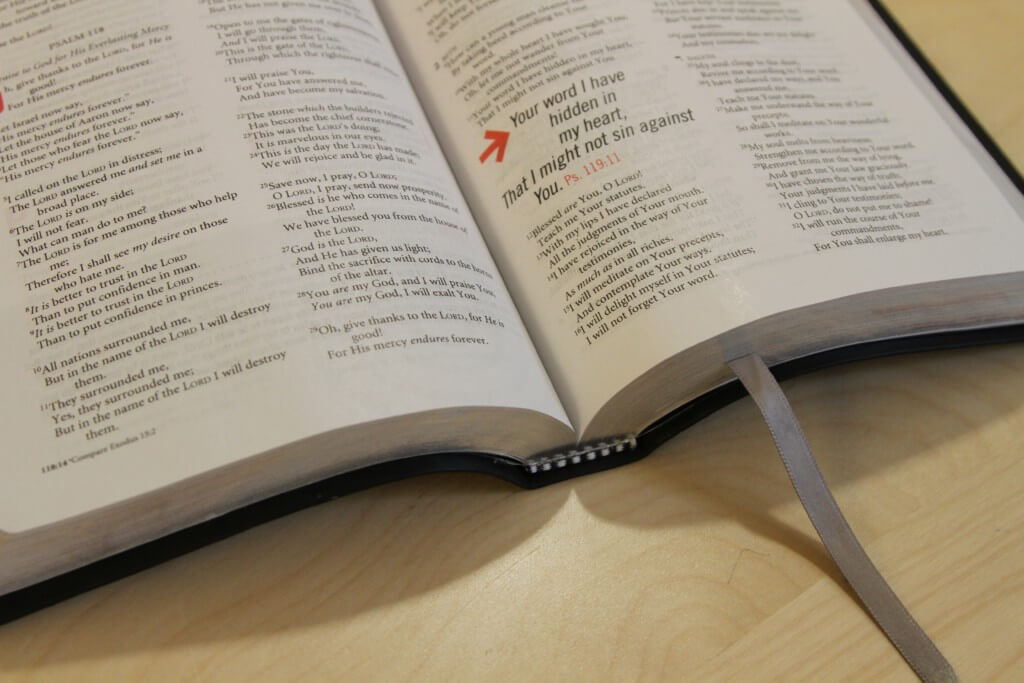
You both want to leave your small hometown, but you love the city and he wants a beach view.You want a big Catholic wedding, but he’s never stepped inside a church. These issues will bring a couple together or coldly tear them apart. Don’t sign on to a relationship doomed from the beginning. Your time is precious. Compromise what you can, sacrifice what you can’t and know how much you bite off before you chew it. Speak clearly with your partner about feelings, intentions and priorities. Remember that not all couples must aim for marriage. And not all couples must stay a fun fling. University of Florida junior Valerie Hernandez said, “College relationships are strange because everyone is at a different stage in all of them. Some people are just dating to date, some are nearly engaged and some are even already married.” Relationships vary, each with different goals. Just make sure those goals align.
2. You feel proud of your partner

Love should make you want to dance in the rain, jump on your bed and shout from rooftops. Be with someone you’re excited about. Don’t hide your love from others. Flaunt it. Hold hands in the street. Introduce your partner to your family. Share your love on social media. You deserve to feel your heart swell with pride when thinking about your partner. Miami Dade Honors College nursing student Gabriela Espinoza said, “I felt so much better after telling my mom about my feelings for a female friend. I didn’t want to hide it anymore, since she was such a wonderful and significant aspect of my life.” Hiding your partners in the dark may bring ugly feelings to light. Insecurities, doubt and mistrust may begin to plague the relationship. Don’t put the question, “Are you ashamed of me?” in your partner’s head. If you do, it could spell the end.
3. You feel safe
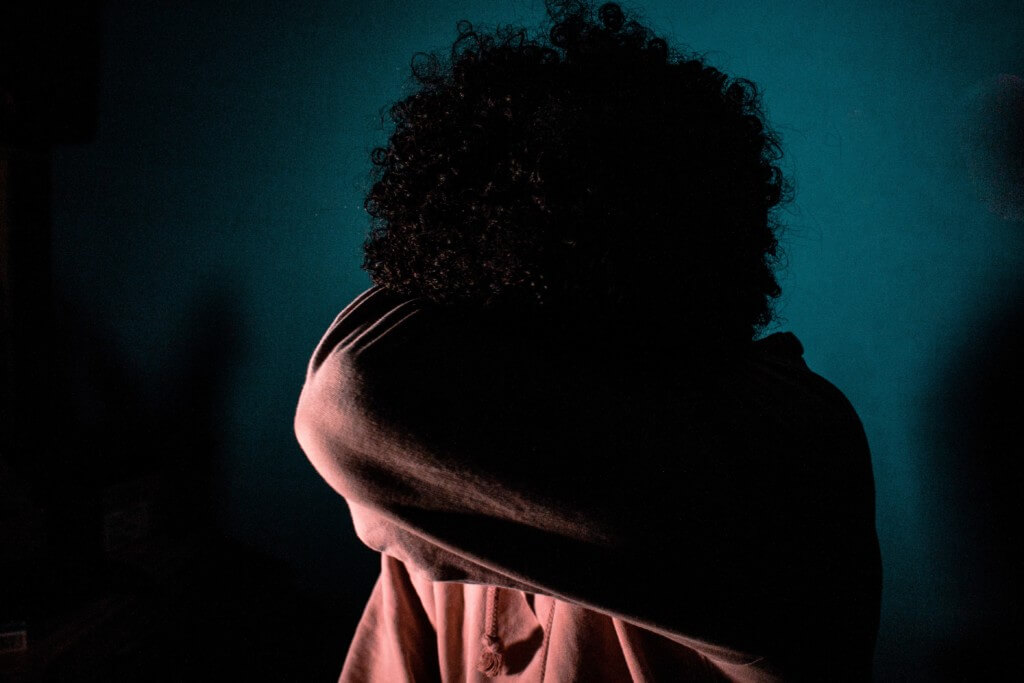
You should feel safe when in the same room as your partner. If you feel like you walk on eggshells around them, consider that a red flag. Do they hopscotch around answering easy questions like, “How was your day today?” or “What should we do for dinner?” Another red flag. Now start the hard conversation to figure it out. No way around it. Communicating with your partner should be easy and freeing. Consent is mandatory and communication is key. Feeling safe and heard can never be just a relationship goal, but a requirement. If you read this and think your love lacks these elements, consider it time to walk away.
Worried you are in an unsafe relationship? Contact the National Domestic Violence Hotline.
4. You feel the distance is worth it

Long distance relationships all struggle one way or another. Your loved one should feel like they exist in your heart, even if they go to college 2,000 miles away. Miami Dade College freshman Katerina Constant said she doesn’t let the miles interfere with her relationship. “We hang out whenever we’re free. Even if it’s 12 a.m., we stay up until like 4 a.m. Talking, watching stuff, playing video games together… his personality and his company just makes me so happy. He’s always the highlight of my day,” Constant said. A relationship that endures challenges will come out the other side stronger, especially in terms of communication. Love someone who makes that 2,000-mile gap feel like a two-second trip away.
5. You can be yourself

Everyone’s a little quirky. Find someone who will laugh at the jokes you thought only you enjoyed. Even the lame ones, like “What’s a pirate’s favorite letter?” Florida International University sophomore Sabrina Fernandez said, “When my boyfriend and I first met, I feel like we fell in love with what we thought the other person could be, not who we actually were. It caused a bit of problems, so my advice is: Love and accept your partner for their true self. Don’t try to change them.” Partners should see every side of you—and love you anyway. It also doesn’t hurt If your partner knows that while you may think pirates love “R,” a pirate’s first love will always be the “C.”
6. You encourage each other to become better people

The people you choose to spend time with reflect your personality. Surround yourself with a person who brings out the best in you, because loved one’s little habits easily rub off on you. Keep this old saying in your back pocket: “If you lie down with dogs, you’ll get up with fleas.” Partners should encourage you to try new (healthy) things, challenge you to think differently and support your deepest aspirations. When you have a tough or lonely day, find a partner that pushes you to take a walk outside with them, rather than downing a few shots to drown the pain. Intentions are important, but actions count. Your loved one should want to make you a better person.
7. You have common interests

Nothing kills relationships like fundamentally different interests. Make sure views align on topics that hold the most value to you. It’s okay to like different pizza toppings or have different personalities. But severely differing religious views or political opinions invite trouble down the road. You may not see it immediately, but try to think about your future together. Do you see yourself bickering about the upcoming election, or arguing over how to raise the kids? College relationships don’t always need to be serious, but the way you connect with your partner should be. Opposites don’t always attract. Major differences in morals or values might lead to the demise of your relationship in the future. Find a partner who is compatible with you, but still forms their own opinions.
8. You both feel free

Florida International University sophomore Edward Lainez said, “I believe a goal for any college couple should be to give each other enough freedom to do what they want via not being clingy or jealous in the relationship. Both partners in a relationship should be their own independent person first, before they can be happy.” Possessive attitudes and controlling behaviors are not healthy. Demanding to know where you are every moment of the day or not allowing you to hang out with your friends is borderline manipulative. Your relationship should feel like a room with all the windows and doors open, with both of you choosing to stay inside. Locked doors aren’t healthy.
9. You’re accepted no matter what

No human is one-dimensional. Your relationship should last through your occasional bad days and sassy attitude. You want to feel loved when you feel tired after a jam-packed day of class and when you spend a day at home sick without any makeup. Your partner should embrace and appreciate every part of you. Great relationships consist of positive actions towards one another, nothing else.
10. You’re actually happy
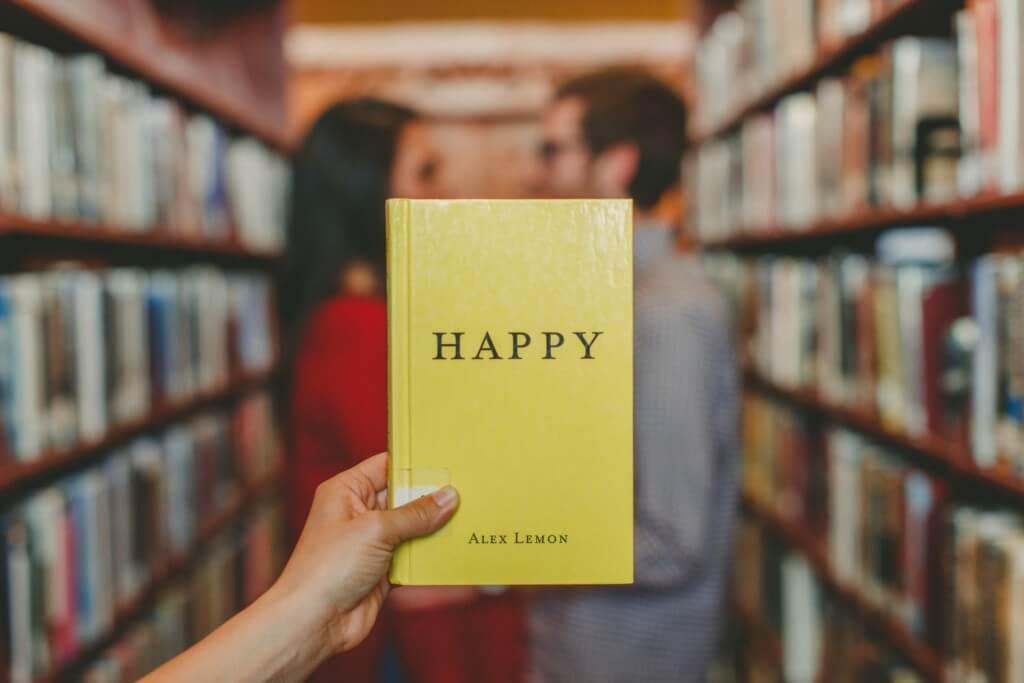
Ultimately, you want to feel happy. And in some relationships what it takes to feel happy might make you or your partner miserable. Realize that person may not be your best match. Do you find yourself talking about them to your friends less and less? Are you excited for your next date? Unhappiness in relationships can sneak up on you. Slowly but steadily, a smile can slip away before you even realize it’s gone. Check up on how you’re doing emotionally to avoid this. Saying goodbye is always better than living in sadness. It doesn’t matter what anybody else thinks, as long as you put a smile on each other’s faces. Only your two feelings count. Find someone that makes you happy like no other. Then work on making them happy, too.
Let the experts answer all your burning relationship questions to make sure you reach the ultimate realistic college relationship goals.
“Don’t Trust Me?” Sharing Passwords with Your Partner
Written by Crystal Becerril, senior, English and journalism, Boston University
Do you remember the episode of Boy Meets World where Topanga uses Cory’s razor in their college years? While it took Cory a while to get over it, it showed that some things, even in a very long-term relationship, aren’t always open for sharing.
In a lesser physical extent, what about online password sharing?
More and more, social media has become a gateway for finding out about someone’s personal life. While one might choose to censor certain things from onlookers, that control of your Facebook page or Twitter feed lies in your access, hidden away by your password.
Dr. Arthur Aron, a Social Psychology professor at SUNY Stonybrook, explained that one stage in a building relationship is the “sharing of resources” and inclusion of your partner in more of your life. He said that shared passwords are an example of “taking a risk,” which is one way of demonstrating that you want to be closer to someone.
When you share this access with someone, there is a level of deeper understanding with that person, which can be scary for some.
“In early stages, people are more cautious,” said Aron. “This is part of the way that we can demonstrate our trust in them and also, it’s something that results from a trust in the other person.”
Still, while a certain level of trust goes into sharing such information, is there also a different degree of trust in not sharing?
“I think that people should trust each other enough to be okay with keeping some things personal,” said Diana Giunta, a University of Vermont student.
While Giunta agrees that there is nothing wrong with the “openness” of sharing passwords, she brings another angle to the subject.
Since one person’s perspective doesn’t necessarily match their partners on everything—especially after a breakup—the risk of sharing a password is substantial.
“I have definitely heard about people who regret sharing their passwords while in a relationship, either because it led to too much snooping during the relationship or a messy situation after the break-up,” said Giunta.
Looking through photos or reading old messages can become addicting and has been known to lead many astray in a wind of doubt over their partner. What is considered a demonstration of trust can often lead to a betrayal of that trust.
The risk is there, whether you choose to show your trust in your partner by sharing or not sharing your online password. In the end, it’s up to you to decide whether you think they are worth it.
Does “Facebook Official” Make it Official?
Written by Ally Lopez, senior, journalism, University of Maryland, College Park
We’re living in a time where our lives are digitally documented, especially on Facebook. With our personal lives so open to the world, where exactly does your romantic relationship fall into the world of virtual romance? Everyone sees what’s going on in your life—the good and the bad—but solidifying a relationship online raises the question of whether Facebook has become too personal.
Nick Alexander, a student at the University of Maryland, College Park, argued that being “Facebook official” holds no significance to a real, meaningful relationship and that this public declaration of love shouldn’t affect a relationship.
“As a private person, there’s no reason to have all of my business out there on the Web,” he said. “What matters is that close friends and family know what’s going on, and that should be good enough.”
Is making your relationship “official” on Facebook a deal breaker or completely forgoing the exclusivity and privacy of romance? University of Delaware student Marie Giancoli said that she felt paranoid when her boyfriend refused to accept her relationship request. “It makes me think that he’s ashamed of me, and it’s honestly kind of shady because I think he wants to look single or something,” she said.
Facebook is as much a part of your life as you make it, and having a relationship in digital writing has an impact on feelings for some, while for others it carries no meaning at all.
“It just makes everything more complicated and awkward,” said Giancoli. “Prolonging a commitment on Facebook adds pressure and stress because I worry about if I’m jumping the gun and mistaking his feelings for me. Making it official just takes a huge weight off of my shoulders because then I can relax and be comfortable in my stable relationship.”
In the Journal of Cyber Psychology & Behavior, a collection of research of college students’ romantic relationships on Facebook presented an interesting find. Rather than enhancing social activity and communication between two partners, the study shows that Facebook actually inhibits the relationship by causing more fights.
With this study in mind, it’s evident that the complications and awkwardness of a virtual relationship confirmation not only affect a relationship but breakups, too.
“Having everything put out there brings about too many questions and a relationship is for those two people, not my 400+ friends,” said Alexander.
“That little red heart always grabs unwanted attention in a newsfeed, and I know that it’s made me look and feel worse in previous breakups,” he added.
10 More Realistic College Relationship Goals
Tips for Balancing Relationships, Schoolwork and a Healthy You
Written By: Rayonna Hobbs
From clubs to relationships, college brings exciting opportunities and new people to meet. we commit to so much. We tend to spread ourselves thin for others and barely save room for ourselves. You need to remember to take care of yourself in the midst of the chaos we call college. It can be easy to fall through the cracks of responsibility – we are overloaded with things to do. Besides busy romantic and school relationships, the relationship we have with ourselves should get just as much attention too. Read on for tips for balancing relationships, schoolwork and a healthy you.
1. When in Doubt Plan it Out
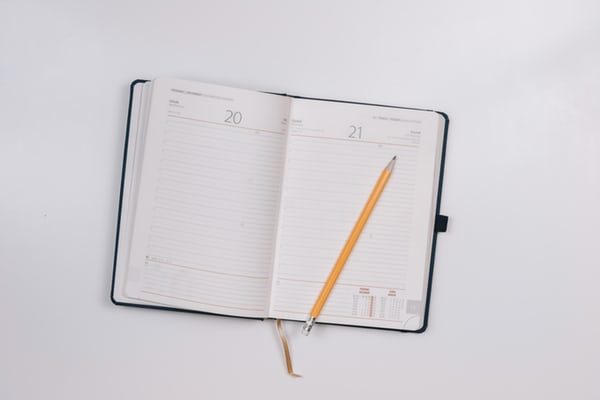
With college comes a busy schedule, and the overwhelming feeling of deadlines and adult responsibilities crashing down on you. Planning everything out is one of the best ways to ease the pressures of college life. The weight of everything piling up on you at once can possibly be one the worst feeling in the world. A core survival skill every college student needs is time management. Always try to take time to plan out your schedule. Whether writing on a calendar or using an agenda book, being able to write out your schedule gives you the control you need and eases your anxiety. School should always come first but remember to make time for your relationships. “I’ll start by saying that me and my boyfriend don’t go to the same college. It is challenging but we make it work by calling each other, updating each other and visit each other,” Morgan State University sophomore Jasmine Gray said. Planning gives you the opportunity to organize and space out time for schoolwork, extracurricular activities, your partner and most importantly yourself.
2. Have a “Treat Yo Self” Day
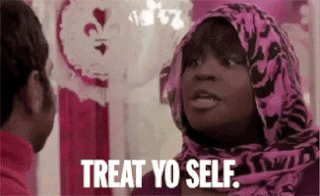
One of the most iconic lines from Parks and Recreation holds the best self-care advice, treat yourself. From waking up for class at 8 a.m. to pulling an all nighter for an exam, in college it never feels like you get to relax. Being able to pamper yourself occasionally wouldn’t hurt. We as students get caught up in trying to do so much and we forget to take care of ourselves in the process. “I like doing skincare stuff like face and hair masks, reading and binging a new series on Netflix or Hulu,” Rutgers University-Camden sophomore Mariel Marthins said. Take a break from the books and slap on a face mask while listening to your favorite album, or even invite your partner over for a movie marathon. Use that time to de-stress and recharge.
3. Set Boundaries in Your Relationships

Early in your relationship you and your partner should have a conversation about setting boundaries. I know it can seem like a scary thing to talk about, but to have a healthy relationship boundary are a must. Not developing clear boundaries in your relationship creates unwanted stress that translates into your school performance. Use this time to communicate your wants and needs. Boundaries allow you to learn about each other’s limits, goals and beliefs. Figure out the appropriate times to hang out, call or text one another or when it’s okay to use each other’s belongings. Physical boundaries are good too, I know it may be tempting to want to spend all your free time together but you both need alone time too. Clear personal boundaries ensure a healthy relationship full of mutual respect, support and love.
4. Remember to Get Some Rest

You can’t attend the next basketball game or go to game night if you don’t get enough sleep – you just won’t have the energy. “Getting sleep in college is important to me because when I’m tired, I don’t want to do anything. I lack motivation times ten when I’m tired and I hate not being productive,” Hudson Valley Community College student Alisha Stocklas said. We need at least six to eight hours of sleep and doing work at two in the morning won’t get you there. I know it can be tempting to stay up just one more hour to finish up that essay, but your health should come first so go to bed silly. Too many of us put sleep as a lower priority and run the risk of burnout (trust me you don’t want that). Getting enough sleep plays an essential part in our academic and social performance. How can you spend time with your partner when you’re dozing off every five minutes?
5. Have Short- and Long-Term Goals
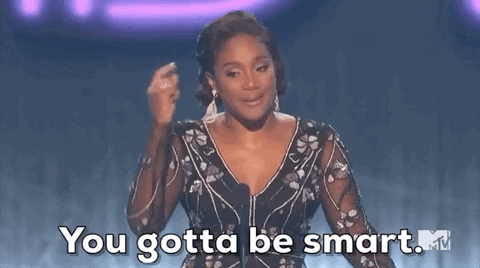
Setting short term and long-term goals act as important elements that’ll lead you to success. Learning how to apply realistic and productive goals in college helps you to stay on top of things and serves as a reminder for your bright future ahead. A helpful guide to make goals for yourself in school is to use the S.M.A.R.T. formula. S.M.A.R.T stands for specific, measurable, achievable, realistic and timely. For example, a common goal may be to pass all your English with an A this semester. Well, luckily this is a specific goal so step one is out of the way. You want to make sure it’s measurable, so you might want to complete your readings by Friday. To achieve this goal, you read each chapter after class to finish by Friday. Reading after class is realistic because you have a 20-minute block of free time between classes. This goal is timely because you have a target date. If your goals uphold the criteria of this method, you’ll surely reach it. You can apply this to your relationship too, setting realistic goals can help improve your relationship overall.
6. Burn Those Calories Baby

Exercise can relieve the stress from your daily life. Getting some type of physical activity is great for the body and mind. You don’t need to have a high-intensity full-body workout either, taking 20 to 30 minutes out of your day to walk around campus can be just as beneficial. “When I feel overwhelmed with my school tasks and work schedule, I make time for myself to walk in nature, it’s great because I get some exercise in without feeling like I’m doing work,” Towson University student Emma Jackson said. Take advantage of the gyms and recreational centers on your campus to let out some steam. If you see ads around campus for yoga or dance classes take the chance and go for it. If you don’t want to try it alone, invite your friends or partner to class and have fun. Don’t forget to hydrate and eat after you exercise.
7. Don’t be afraid to say no

If you have a habit of being a “yes man” to everything you get invited to, maybe it’s a good time to start saying no. Party hopping may be fun at the moment but the sudden feeling of remembering you had homework due at 11:59 pm in the middle of the dance floor is a total buzzkill. Remember to prioritize your education first. There are always going to be parties on campus you can go to, it’s perfectly okay to miss a party if that means getting your work done. So, what do you do when your friends or partner invites you to hang out but have work to do? Try killing two birds with one stone and have a study session with them, play a few tunes and have some snacks and you’ll have just as much fun .
8. Share Your Honest Feelings in Your Relationships

Internalizing your feelings isn’t the healthiest coping mechanism out there. When you’re feeling down or you just need to vent, going to someone you trust and talking to them about your problems works as a healthier option. Talking to your friends or loved ones can relieve you of pent up stress and provide you with the comfort of someone there listening to you. Don’t forget about the options you have on-campus too, try reaching out to your campus wellness center and see what counseling services they can provide for you. It’s important to not isolate yourself when you’re feeling the most distressed.
9. Silence All Cell Phones, Please

We currently live in the middle of the internet sea where we often drown trying to navigate the tech-heavy waters. As young people, we don’t notice how consuming the internet and social media can be in our lives. Twitter feuds and the latest selfie your favorite celeb posted certainly can’t be as important as you think it is. Have an internet and social media purge and log off. Enjoy the entertainment around you and bask in the beautiful day outside. Instead of FaceTiming or texting people go see them in person I promise they’ll appreciate it too.
10. Cook and Eat the Food You Love

Just like sleep, food keeps you healthy and energized for the day. Most students forget to set some time aside end up skipping meals. Eating your favorite snack after a hard day’s one of the best feelings in the world. Try snacking between the day to keep your mind and body in check. Cooking can be relaxing too. “It’s a healthy distraction from things that can get me down and I can focus on something that doesn’t require a lot of thinking,” Mariel said. Test your culinary skills and try out a new recipe or bake some fresh goods and feel proud of your cooking achievement.
*Updated May 22, 2019 by Crystal Becerril to include “‘Don’t Trust Me?’ Sharing Passwords with Your Partner.”
*Updated May 22, 2019 by Ally Lopez to include “Does ‘Facebook Official’ Make it Official?”
*Updated September 5, 2019 by Rayonna Hobbs to include “Tips for Balancing Relationships, Schoolwork and a Healthy You.”



















